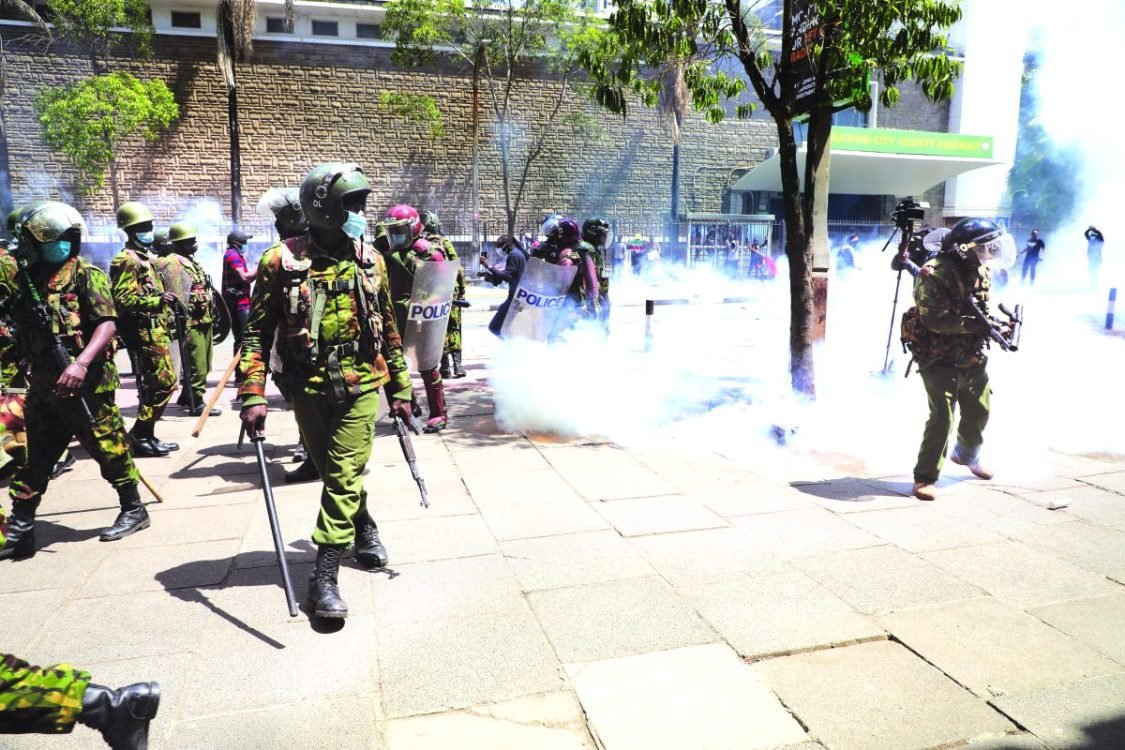Lessons for Gen Z from recent liberation struggles
By Print Correspondent, August 14, 2024Different eons have seen the rise of liberation movements that have had their measures of success and failure. The common thread in such struggles across Africa is that the real freedom fighters end up being left out in the new formations that seem to replace the oppressive regimes that were pushed out. Collaborators and people who worked with the colonisers were handed the mandate to rule Africa.
The reason is clear for all to see – self-preservation of those exiting power. This is true of Kenya, where the real Mau Mau fighters were sidelined as perceived collaborators were rewarded by the exiting British colonisers, and to date, many freedom fighters have never recovered their lands and remain landless in their own country ruled by their own brothers and sisters. Why, because they did not know when to go to the negotiating table and get their fair share of the cake.
The same could be said not just of British colonies around Africa but also French ones, where freedom fighters like PLO Lumumba in what is now DRC were assassinated to install the colonial masters’ sympathisers.
In more recent struggles, it has been deduced that revolution devours its own children. The Arab Spring, for instance, led to the fall of the longest-serving rulers in the Arab world, but what do young people in these countries have to show for the Arab Spring movement? After felling heavyweights like Tunisia’s Zine El Abidine Ben Ali (2011) Libya’s Muammar Gaddafi (2011), Egypt’s Hosni Mubarak (2011) and Yemen’s Ali Abdulah Sale (2012), politicians recouped themselves and took over power and continue the status quo of oppression of the masses, corruption and bad governance.
Take, for instance, where Egypt is today – more fragmented and unstable than ever before. The politicians have made it worse than when Mubarak was alive, making a joke of the Arab Spring that spearheaded revolutions in that region.
Taharir Square demonstrations that became the face of the Arab Spring caused an oppressive regime to collapse. They had a simple and clear clarion call – the people want to bring down the regime. That they achieved but soon after, more chaos and noise than light at the end of the tunnel.
While leadership changed and regimes were held more accountable, power vacuums opened across the Arab world. The Arab Spring resulted in a contentious battle between a consolidation of power by religious elites and the growing support for democracy in many Muslim-majority states. The early hopes that these popular movements would end corruption, increase political participation, and bring about greater economic equity quickly collapsed.
The Syrian civil war has caused massive political instability and economic hardship, with the Syrian pound plunging to new lows. In Libya, a major civil war recently concluded, with foreign powers intervening. In Yemen, a civil war continues, and in Lebanon, a major banking crisis is threatening the country’s economy and that of neighbouring Syria.
Kenya’s Gen Z movement is said to have spread across Africa, with Nigerian and Ghanian youth reported to have tried to copy the tactics of their Kenyan counterparts, who need to reflect on how past liberation struggles have worked – their successes and failures – to avert similar pitfalls.
It is said that Gen Z went to the jungle to hunt. They killed a big antelope in July when the President disbanded his entire Cabinet, only for young people to lose everything as the ravenous politicians came over and took away the hunt. Gen Z, who could be categorised as small cats in the animal kingdom, need to quickly learn how best not just to run and catch their prey but, like their peers, the leopards, take away their catch and hide in the trees where the other heavy hunters like hyenas (read politicians) cannot reach and steal it.
— The writer is a Communication and Media Expert in the Horn of Africa;
More Articles

